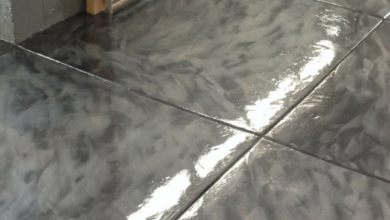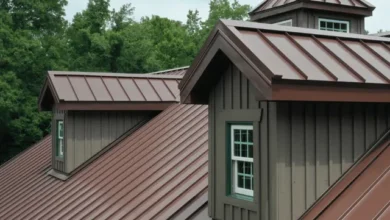A boiler is the most widely used household appliance. However, they don’t have any expiration date. They can stop working if you ignore certain warning signs. Like any other thing, your boiler also needs some love and maintenance. You can connect with different options to find a boiler that matches your needs.
A faulty boiler can cause a fiasco, especially in the winters. Buying a new boiler may be the only best option then.
This article will discuss signs indicating it’s time to replace the boiler. So, without any further ado, let’s do some “boiler talking”.
Slow Performance of Radiators
If the radiator of your boiler takes longer to heat up than usual, it may be on its way to breakdown. An average boiler takes around 30-40 minutes to heat the water. If your boiler takes more than 60 minutes to heat up, it could mean outdated radiators.
However, radiators taking longer to heat up doesn’t always mean it’s time to replace the boiler. Instead, it could often mean that the radiator’s system is clogged with dust or sludge. If that’s the case, you can also get your boiler repaired.
Even after the repair, if the heating process is slow or the water isn’t as hot as it used to be, it’s time to say goodbye to your old boiler.
Foul Smell
Your boiler needs to be inspected if you notice a foul or pungent smell coming from it. A bad smell means the boiler typically is leaking carbon monoxide. Remember that a normal functioning boiler will never emit any odour.
Moreover, the carbon monoxide has no smell. So, if you notice a smell emitting from your boiler, it means the leak has prevented the boiler to not burning completely.
Carbon monoxide leaks can be dangerous to you and your family. Some common signs of carbon monoxide leak include:
- Increased moisture on the windows and mirror
- Dark rustic stains around the edges of the boiler
If you encounter any of these symptoms, you must reach an expert for immediate replacement or repair. Lastly, installing CO alarms close to your boiler is ideal to ensure any gas leak is detected earlier.
Bright Yellow Flame
A healthy sign of a properly functioning boiler is a blue flame. A blue flame during the warming of the water means every part in your boiler is in prime condition. However, if you notice a bright yellow flame, may it’s time to find a boiler replacement. The yellow flame could be due to leaked carbon monoxide or any other part getting out of order.
Leaking or Dripping from Boiler
Your boiler shouldn’t ever drip or leak water. Dripping and leaking water usually means the internal parts such as; the seal, radiator, or valve is broken. If left untreated, it could result in structural damage or an electrical short circuit. If you notice a leak, power off the boiler and get it repaired immediately. However, a more reliable solution in this scenario is to buy a boiler.
Poor Pressure Often Means It’s Time To Find A Boiler
Pressure loss in the boiler means it takes longer to heat up the water. This could have an overall negative impact on the boiler function. It’s easy to notice a loss of pressure; just keep an eye on the flame. A reduced flame is often due to poor pressure.
Here are some reasons why there is a loss of pressure
- Broken central heating system
- Water leakage
- Air holes in the valve
Kettling Issues
Any technical issue in kettling can make the entire heating system ineffective and demand frequent repairs. Moreover, it also shortens the average lifespan of a boiler. The most common and prevailing fault is an outdated boiler.
The kettling system is broken down if there is an unusual sound similar to gurgling and rumbling.
A noisy boiler means a broken one. It can disturb the balance between hard and soft water, leading to serious health issues. This means that you need to find a boiler replacement immediately.
Some reasons behind a noisy kettling are:
- Built-up sludge in a heat exchanger
- Slow water flow
- Limescale pressure in pipes
Moreover, a kettling issue can be hazardous. It can boost the pressure of the boiler and result in an outburst of the internal pipe and pumps. The high pressure can also cause electrical threats and steam emissions.
Recurrent Breakdowns
The new boiler cost may not be a budget-friendly option. However, if your old boiler has started giving you a hard time whenever you switch it on, replacing it is the best option. Replacing an old boiler can save you from frequent breakdowns and unnecessary service repairs.
Noisy Systemic Sounds
It’s normal for boiler and radiators to make noises, as long as it’s not too loud. Tapping noise in the boiler’s radiators or pipes could signal dust and sludge piling up inside the system.
However, if there is a vibrating, whirring, and banging sound, it means there is a severe technical fault in the central heating system of your boiler. Some common reasons behind such unusual sounds are:
- Broken valve
- Sludge pump
- Faulty central heating system
Power off the boiler immediately if the unusual sounds and noises are loud and scary. You can get it fixed with the help of a heating engineer.
Faulty Pilot Lights
It’s common for the pilot lights to turn off for several reasons.
- Broken thermocouple
- Low gas supply
- Piled up deposit
- Leakage in the radiator or valve
- Faulty sensor
- Frozen pipers
- Low pressure
- Blockage inside burner
You can reignite the pilot lights without any professional assistance. However, if they don’t turn on or the problem persists, you may need to say goodbye to your boiler. The pilot light is important as it indicates no gas leak. If it goes out, turn off the boiler in case of a gas leak.
Conclusion
Repairing an old boiler can save your time and cost only in the short term. This article has highlighted nine signs that indicate a boiler replacement. If you encounter any of these signs in your boiler, maybe it’s time to get a new one.





